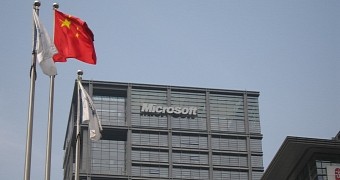Microsoft purchased Nokia's Devices and Services unit last year, and as part of the acquisition, the software giant also planned to shut down two plants in China and move production to new facilities in Vietnam.
The two plants, located in Beijing and Dongguan, were previously run by Nokia, and as part of the reorganization plan, a total of 9,000 workers will be fired, a report by MarketWatch reveals.
Any other details regarding the timing of the closure or the relocation to Vietnam are yet to be disclosed, but according to the same source citing people close to the matter, the transfer of production capacity to Vietnam should be complete by the of March.
The 9,000-job layoff is part of the restructuring process that Microsoft started last year and which included a total of 18,000 job cuts impacting pretty much every single division within the Redmond-based tech giant.
Microsoft versus China
In the meantime, Microsoft is still experiencing a number of legal issues in China, where the company is investigated for anti-trust violations which are yet to be detailed to the press.
Chinese prosecutors raided several Microsoft offices in 2014 and seized computers and documents that could be used as evidence during a trial. Microsoft has never provided an explanation for the investigation, but it did mention several times that it was willing to work with Chinese authorities to address all claims.
What's more, in May 2014 the Chinese government decided to ban Windows 8 on all their computers, pointing out that Microsoft's new modern operating system poses security risks that could provide the American intelligence agencies with access to secret state information.
Since then, Chinese authorities pushed not only government officials but also consumers to Linux-based alternatives that were considered more secure than Microsoft's own operating system.
And yet, because of the high piracy rate in China, Windows continues to lead the local market, with around 97 percent of the desktop computers in the country still powered by Microsoft's Windows.

 14 DAY TRIAL //
14 DAY TRIAL //